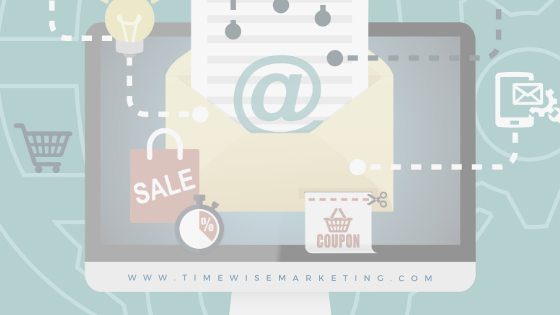Our best advice to get your Search Engine Optimization up-to-par in today’s market.
Our best advice to get your Search Engine Optimization up-to-par in today’s market.
Search Engine Optimization use to be as easy as adding various internal links, writing great content, and highlighting keywords relative to your business. But now, search engines have altered their algorithms to knock out websites with spammy content. That means Google, Yahoo, and Bing are showing users only websites that are relative, truthful and useful to their search efforts.
There are many ways to perfect your website to be SEO friendly. And those various efforts can be broken into two categories: Organic Results and Paid Results.
Paid SEO is just that; you set-up a paid advertisement that specifically focuses on keywords your customers would use to find your services. Based on what your competitors are paying for those keywords, you’ll be charged on a per-click basis, depending on which search engine you use.
Paid Search Engine Optimization works great, but you have to work at it to make it work for you. You’ll have to monitor keywords, and your competitor’s keywords, to make sure that you’re bidding on the right keywords for your consumers.
If Paid SEO is not in your marketing budget, there is no need to stress. There are many ways to boost your page ranking organically. If you are able to login to your website’s backend, most of the edits are easy fixes.
Below are our first go-to tactics to improve SEO-friendly sites.
Keyword Identity For Search Engine Optimization
Identifying your keywords is our first and most important element for the SEO process. Keywords are what your ideal consumer would be using, or typing into the search box on any search engine. Keywords are also phrases that your business and/or services can relate to. And you also want to keep in mind some keywords your competitors may identify with so you can incorporate some of the same phrases to your SEO strategy.
Identifying your keywords is not just for paid Search Engine Optimization. Using your keywords within your site and site titles helps your organic boost in many ways. After reading the next two items on our list, you’ll understand why keyword identity is very important.
URL Set-Up for SEO
Once you’ve identified some keywords and key phrases for your business, you’ll want to incorporate them into your URL path. Doing so will help search engines understand what type of content your page contains, which then makes certain pages more relevant for some consumers. Those are the pages search engines will showcase.
For example, if a user is searching for “marketing services”, a page like ours may be a good fit for that consumer.
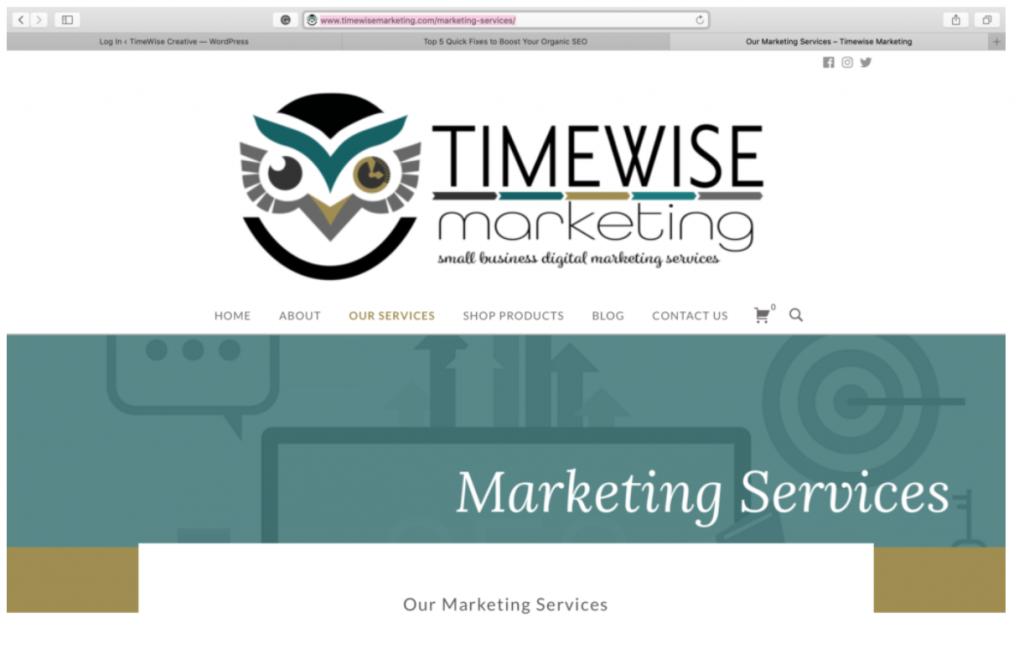
This shows the search engine and the user that the page displayed will contain various marketing services offered.
You’re able to make these changes from the back-end of your site. If you’re using a CMS, or content management system, like WordPress, Wix, or Sitebuilder, you should be able to edit the permalink within the page you are editing. Some CMS allows you to change this in general settings, and the same rule will apply for all pages. So, if you select a setting to automatically make the URL Path based on the page’s name, then it will apply it to all pages and you won’t have to change the URL Path one-by-one.

Personally, we adjust each page. Sometimes the page title (depending on how you set-up your website) may not be a great fit for a URL, so you want to make changes to your web is portrayed as truthful as possible.
Meta Tags for SEO
Meta Tags are a short piece of content that tells the search engine what your page is about. Meta Tags are part of the page’s code, so the content within the tags are not visible to the consumer, except for placement in the search engine results.
If you’re using a CMS, see what features your account allows for adding meta tags to your pages. Often times, the option is below your content page. For example, on our WordPress Site, we have the option as part of the page template [see image examples below].

Our Timewise Creative Blog focuses on different digital marketing concepts. However, we used the Meta Tags to describe each page, or blog post, to tell the search engine what our page is talking about.
For example, one of our blog posts about completing a competitor’s analysis shows as a top result when searching for “competitor’s analysis”. The keyword is not in our title or URL but it is in our Meta Tag. [See Image Below]
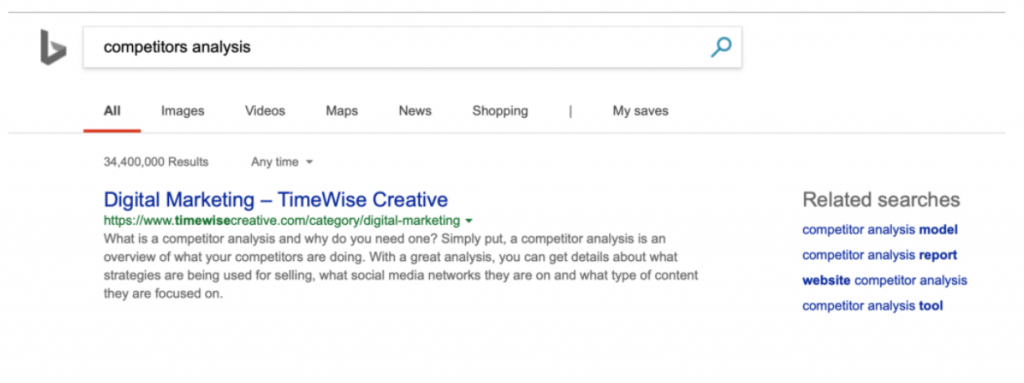
Page Titles for SEO
As simple as that sounds, this is an important one too. You’ve already identified your keywords, and you’ve adjusted your URL paths. Now, it’s time to adjust the page names. This help with organic SEO by showcasing to the search engine that your page is relevant to the search keyword. For example, if you are highlighting your services on your home page, but leave your page title as “home”, search engines won’t identify that page as a relative page for your consumer.
So, if we know our consumers are searching for “marketing services” we want our page title to be similar. We will adjust to “marketing services” for small business, or similar so that we communicate with the search engine that our page is relative.
Below is an example of our blog’s site. If we search for a “time management blog” our blog comes out as a hit. Why? We included in our page title “time management blog” so the search engine picked it up as a relative site.
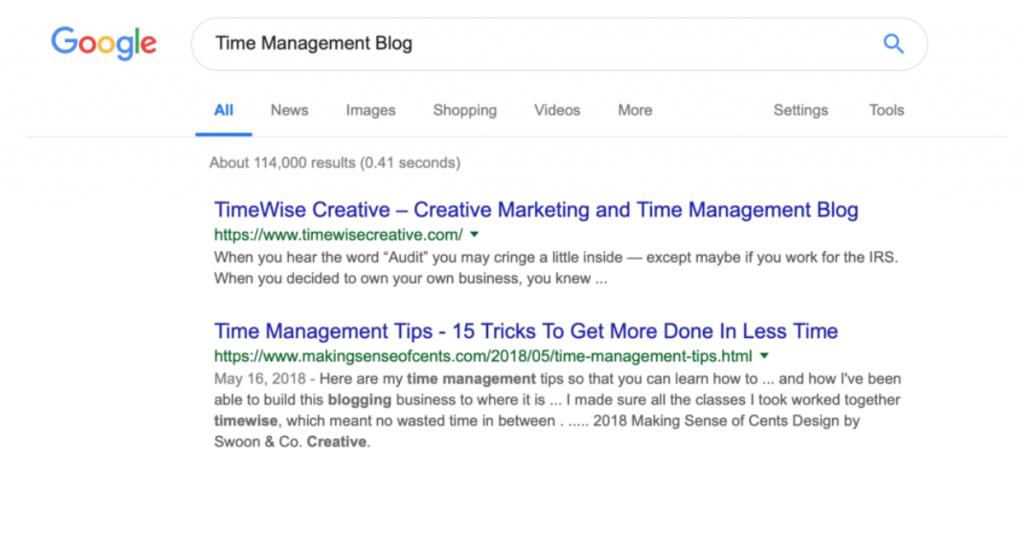
Fresh Content Helps SEO
Last but not least, content. We’ve heard that content is king and it really is. When you update your content often, search engines are aware that your site is an active site. With new and fresh content, you also work around your keywords to help SEO continue to push your site higher. The best type of content to use: Blogs, Images, and Videos.
Blogs allow you to write relative information to your business or services, which helps boost your organic reach. Not only will the content in your blog help with SEO rankings, but blogs also allow users to identify you as an expert in your services. A blog is more than just an SEO booster, it is a great way to help your consumers find you, communicate your services more clearly, and help showcase your knowledge about what you do.
Use the keywords you identified in step one, and work them into your content. Whether it is blog writing, photo’s meta tags, or video descriptions, your keywords will be a great guide for your content design.
And just because we love what we do so much, we’ll give you a freebie:
Social Media Sharing Helps Boost SEO
That’s right! When it’s all set and done, make sure to share your web pages, new blog posts, images and videos on your social pages. Social media is HUGE and sharing your web content will help with organic SEO. Because social media platforms are so popular, some search engines may pick your social profiles to rank higher than your website. And that is not a bad thing! As long as you’ve linked your social to your web and vice-versa, you’re rocking it!
We did a general search for our business name and check out the results [see image below]. Two of our social pages rank higher than our site itself!
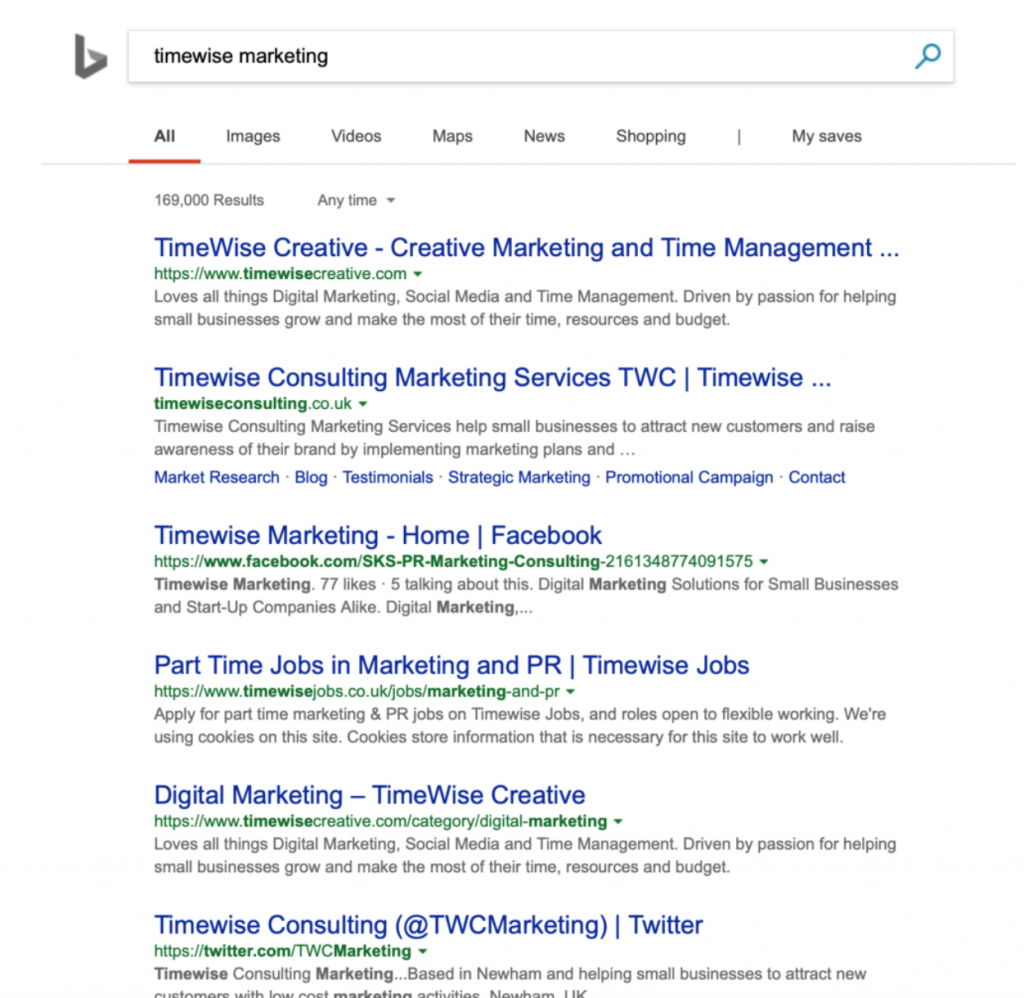
We believe Search Engine Marketing is an important part of a great Marketing Plan. But it is just part of the plan. Make sure you’re ready for a new year of marketing trends, and that your business is staying on top of its market.
We’re offering a year-end marketing bundle offer. If you’re ready to rock it, we can help! We’ll provide done-for-you strategies and resources so that you have everything you need to kick-off 2019!
Let us know how we can help you grow your business!

